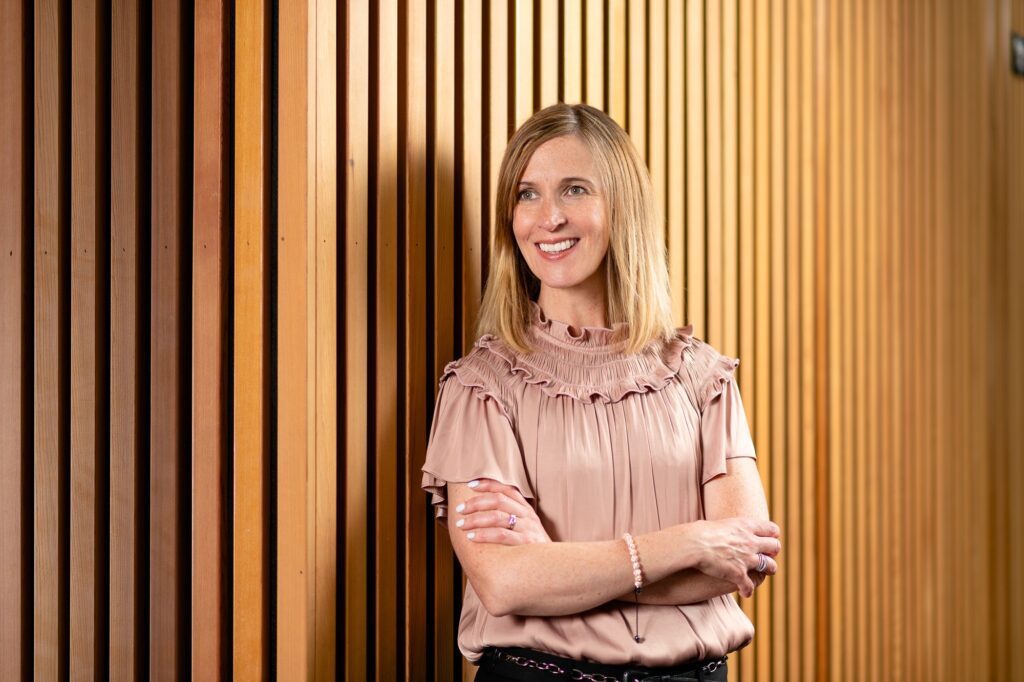Clare Taylor, founder and owner of Apricus Marketing, shares an insight into her world of marketing and why it’s important to master the art.
Good marketing always starts with strong strategic foundations that hones in an area of focus that marries your brand and offer. If the fundamentals are done correctly, and not ignored, there’s every chance for a business to stand out and thrive.
So, why is it important for furniture businesses to have a marketing strategy?
Clare Taylor, founder of Apricus Marketing, explains just that. “It ensures that your proposition is clear, targeted and connects well with your audience. And that doesn’t just involve looking at your business and your own strengths and weaknesses, a key part is understanding the marketplace around you and finding your space – being choosy around who you do and don’t want to compete with, and how. This is particularly important in markets that are saturated such as furniture where so many businesses are competing for space whether it be manufacturing or online v bricks and mortar retail.”
“All of the services I offer are completely scalable from larger businesses right down to start-ups.”
Clare Taylor
In the marketing world, Clare has built a solid reputation with over 20 years’ experience in various marketing, business development and account management roles, including five years in the furniture space in positions as marketing manager at Hypnos Contract Beds and head of marketing at Breasley. In September 2020, she decided the time was right to launch her own venture and Apricus was born. Two years on, Clare hasn’t looked back.
“It struck me that there was a potential opening for a remote marketing management offering as businesses were pivoting and cutting back on overheads during the pandemic. It also struck me that, more than ever, businesses needed to be sure the marketing they were investing in was targeted in the right direction and focused on delivering long-term results so they could not only survive the pandemic, but quickly get back to thriving thereafter.”
Since starting Apricus, Clare has continued to work with clients in the furniture industry, with some names including Staingard, Pike Textiles and Peak Converters Ltd.
Key services include strategy and tactical planning, market research and analysis, content creation, delivery and mentoring. Clare continued: “These are very much focused on business growth, making sure that my clients have the right foundations in place to compete and stand out in their sector, whether that be focused on launching new products, diversifying into new sectors, or developing their brand awareness.
“I also offer a marketing audit. This is popular with businesses who are busy with their day-to-day marketing but don’t have the time, resource, or knowledge to sit back and assess what it is actually delivering for them. I go in and look at the whole mix of activity and where it is or isn’t impacting the business, making recommendations for improvement and refinement. All of the services I offer are completely scalable from larger businesses right down to start-ups.”
Keeping on top of latest trends is another key asset Clare has too. In the fast-moving world we live in today, it can be hard to determine, spot and action trends as they happen. Clare said she is seeing more AI and VR solutions in the market, which will have an impact on both customer and employee experience going forwards, while short-form video content looks set to continue and ads will become more personalised.
Without giving too much away, Clare also shared her top tips on marketing fundamentals that every business should be adopting and implementing. They are:
Keep it simple
“Your marketing strategy doesn’t need to be complicated to be effective.”
Measure
“Have a tactical plan in place, backed by a budget so you can measure the success of your activities, return on spend and impact on the bottom line. And make sure you have the right measurement metrics in place.”
Be your customer
“Don’t be obsessed with things that aren’t relevant to your customer.”
Evaluate
“Take the time to evaluate the inputs into your marketing proposition before wading into producing marketing outputs. This will ensure your outputs are more effective.”
Then there’s the other side of the coin, the marketing mistakes and pitfalls to avoid, with the most common being stop-start marketing.
“There are three main pitfalls that I have seen throughout my career that rarely change” Clare said, continuing: “One is stop-start marketing. In times of business upheaval – upturns, followed by downturns – it is invariably marketers who feel the impact initially. Marketing budgets, rightly or wrongly, are often the first to be cut in harder times, and are generally slow to return to previous levels when things start to pick up again. This makes budgeting and planning difficult at both the business and departmental level, with businesses often not feeling the effects of pulling back on their marketing until further down the line – sometimes as long as six or 12 months later when they wonder why their sales are down.”
“The second is larger organisations not positioning marketing in the right place within their business. Marketing teams should not operate in a silo. They should be connected cross-departmentally throughout a business, particularly working with ops / production, R&D, HR and customer service departments in order to really have an impact.”
“The third is not measuring what they are doing. There is a tendency, particularly in smaller businesses, to just ‘get on with it’ because resources are limited, so the focus is on delivery but not necessarily on monitoring the results.”
Apricus Marketing provides the solutions to avoid these common mishaps, and as Clare eluded to, the furniture industry is one that needs plenty of master marketeers.
